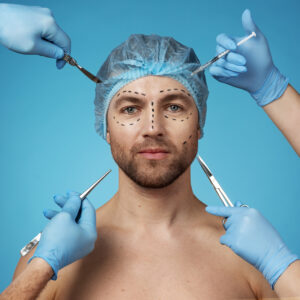As the population continues to age, the demand for geriatric dentistry in nursing homes has risen significantly. However, accessing dental care for elderly residents in these facilities often poses significant challenges due to mobility issues, transportation constraints, and limited access to dental facilities. Mobile dental services have emerged as a crucial solution to bridge this gap, offering essential oral healthcare to seniors in the comfort of their nursing homes. This article explores the importance of mobile dental clinic services and how they have come to the rescue for geriatric dentistry in nursing homes in the United States.
The Growing Need for Geriatric Dental Care
The elderly population in the United States is expanding rapidly, and with it, the demand for specialized healthcare services for seniors. Oral health is an integral aspect of overall well-being, and neglecting it can lead to a host of serious health issues, including heart disease, diabetes, and malnutrition. Unfortunately, many older adults in nursing homes face barriers to accessing regular dental care, resulting in untreated dental conditions and reduced quality of life.
Challenges in Traditional Dental Care for Nursing Home Residents
Transporting elderly residents to dental clinics can be a daunting task due to their limited mobility or medical conditions. The logistical challenges of coordinating transportation for multiple residents further exacerbate the situation. Additionally, dental clinics may not always be equipped to handle the unique needs of geriatric patients, leading to suboptimal care or neglect.
The Role of Mobile Dental Services
Mobile dental services have emerged as a groundbreaking solution to address these challenges. These specialized dental units are equipped to deliver comprehensive oral care directly to nursing home residents. Dental professionals who offer mobile services are trained to handle geriatric patients with care and compassion, understanding the specific oral health needs of older adults.
Benefits of Mobile Dental Care for the Elderly
Convenience and Accessibility: Mobile dental services bring the care to the patients, eliminating the need for transportation and reducing stress for both residents and caregivers. This accessibility ensures that seniors who may otherwise be left without proper dental care can receive timely treatment.
Comprehensive Oral Care: Mobile dental units are equipped with state-of-the-art equipment that allows for a range of dental procedures, including dental exams, cleanings, fillings, and denture adjustments. This comprehensive care contributes to better oral health outcomes for the elderly.
Preventive Care: Regular visits from mobile dental units allow for early detection and prevention of dental issues, reducing the likelihood of more serious problems developing over time.
Enhanced Quality of Life: Improving oral health positively impacts overall well-being and quality of life for elderly residents, allowing them to eat comfortably, speak clearly, and enjoy a pain-free mouth.
Collaborative Approach: Mobile dental teams often work closely with nursing home staff and caregivers, providing education on oral health maintenance and supporting the integration of dental care into the residents’ overall healthcare routines.
Conclusion
Mobile dental services have emerged as a crucial lifeline for geriatric dentistry in nursing homes, providing much-needed oral healthcare to elderly residents who face barriers to traditional dental care. These mobile units offer convenience, accessibility, and comprehensive oral care to ensure that older adults can maintain good oral health and, in turn, better overall well-being. As the elderly population continues to grow, the importance of mobile dental services in nursing homes will only become more evident, supporting a healthier and happier aging population in the United States.





